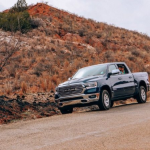Nowadays, it’s almost impossible to open your newspaper or turn on your favorite TV channel without hearing about a fatal traffic accident that took place. We’ve grown so used to these types of news that they no longer come as a surprise. However, this doesn’t mean road safety is not an important issue to discuss.
Apart from the car crashes we witness daily, another growing concern are truck accidents. These types of accidents are not as frequent as car accidents but that doesn’t mean they should be neglected. Truck accidents cause much more damage and pose a much larger threat to the victim than a car crash.
Their size and weight magnifies the potential for devastating outcomes. That’s why it’s essential for accident victims to understand their rights. After such an accident, it’s necessary to take steps to protect yourself and get a fair settlement.
If you want to learn more about how to ensure you’re treated fairly after a truck accident, stay tuned and keep reading to find some useful and actionable tips below.
Why truck accidents are more dangerous than car accidents
Truck accidents are inherently more dangerous than car accidents for multiple reasons. First and foremost, the difference in size and weight between trucks and passenger vehicles is huge. A fully loaded truck can weigh up to 40 times more than a standard car, leading to catastrophic damage in collisions.
Moreover, trucks have larger blind spots and longer stopping distances compared to cars. A fully loaded truck needs significantly more time and distance to come to a complete stop, making it challenging for truck drivers to react quickly to sudden changes in traffic conditions.
On top of all that, truck drivers often deal with more fatigue and long working hours. Due to the nature of their jobs, they often have limited rest time and don’t take as many breaks as they should. All of this together leads to higher chances of truck accidents taking place.
Steps to take after a truck accident
After you’ve been in a truck accident, the last thing you probably want to deal with is paperwork. However, it’s a necessary step to ensure you get all of your medical bills refunded and also get the compensation you deserve. You can also always ask a family member to assist and help out with this part if you’re not feeling up to it.
Document the scene
The first and most important thing is to gather as much evidence as possible. Collecting evidence from the accident scene is vital for building a strong case. Use your phone to take detailed photos of the accident scene, including vehicle damage, road conditions, traffic signs, and any visible injuries.
If there are witnesses, gather their contact information and ask for their statements. This documentation will be valuable when assessing fault and seeking compensation. Even the smallest detail matters so don’t hesitate to reach out to anyone who might have witnessed the scene.
Seek legal counsel
One of the most critical steps you can take after a truck accident is to seek legal counsel from an experienced truck accident attorney. Truck accidents in Montana can involve multiple parties, including the truck driver, the trucking company, and possibly other entities such as vehicle manufacturers or maintenance providers.
If you’re a truck driver who’s been hurt in an accident, you have the right to seek a fair settlement.
Trucking companies are often at fault for failing to adhere to recommended guidelines and regulations, leading to situations where their truck drivers are overworked and exhausted, which impairs their focus on the road.
This has contributed to an increase in trucking accidents in certain parts of the US. The state has seen a rise in accidents involving large trucks, with driver fatigue being a significant factor in many cases. This makes it crucial to consult with a truck accident lawyer from Montana who understands the complexities of these incidents and can provide essential support and legal guidance.
Avoid communication with insurance companies
It’s important to avoid making statements that could be interpreted as admitting fault. Even if you believe you may have contributed to the accident, let the insurance companies and legal authorities determine fault based on the evidence. Even if you feel like you should be involved in the negotiations, it’s important to trust your lawyer.
Insurance company representatives can often be a bit aggressive in the way they communicate and it’s their goal to make you upset and trick you out of a fair settlement. It’s best to avoid talking directly to them. Leave all the communication and negotiations to the truck accident lawyer to avoid saying anything that would give them justification to offer you an unfair compensation package.
Also, the less you have to deal with the insurance company, the better for your mental health.
Keep records of expenses
Maintain thorough records of all expenses related to the accident, including medical bills, vehicle repair costs, and any other out-of-pocket expenses. Keep receipts and documentation to support your claim for damages. This financial documentation will be crucial in proving the full extent of your losses and seeking appropriate compensation.
The key takeaways
Protecting your rights after a truck accident involves a series of equally important steps. The severity of truck accidents and the complexities involved in determining fault make it essential to approach the situation with care and caution.
With the number of trucking accidents rising across the US, it’s important to be familiar with the steps you need to take as an injured party.
By ensuring safety, documenting the scene, exchanging information, and seeking legal counsel, you can better navigate the aftermath of a truck accident and protect your rights effectively.
Consulting with a professional truck accident attorney is a crucial step in securing the support and representation needed to get a fair resolution and hold responsible parties accountable.
Lynn Martelli is an editor at Readability. She received her MFA in Creative Writing from Antioch University and has worked as an editor for over 10 years. Lynn has edited a wide variety of books, including fiction, non-fiction, memoirs, and more. In her free time, Lynn enjoys reading, writing, and spending time with her family and friends.















